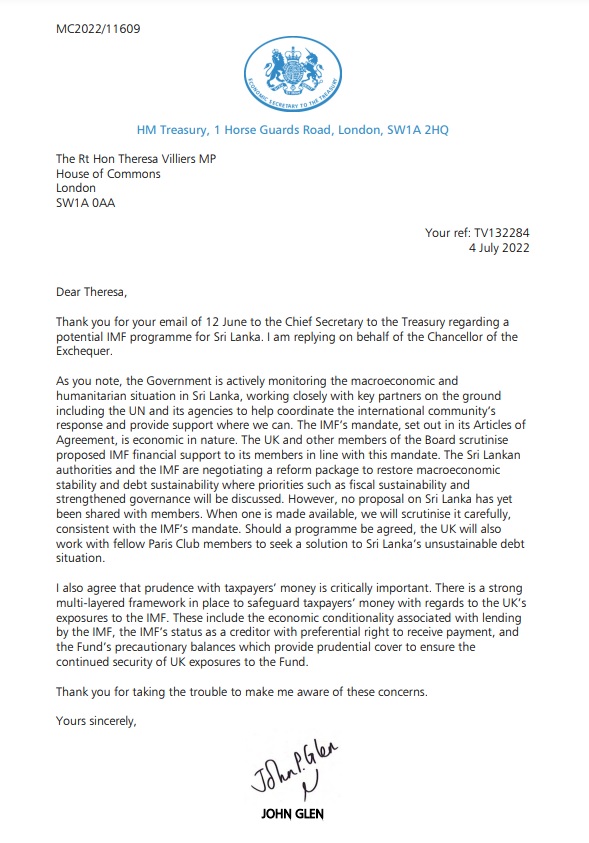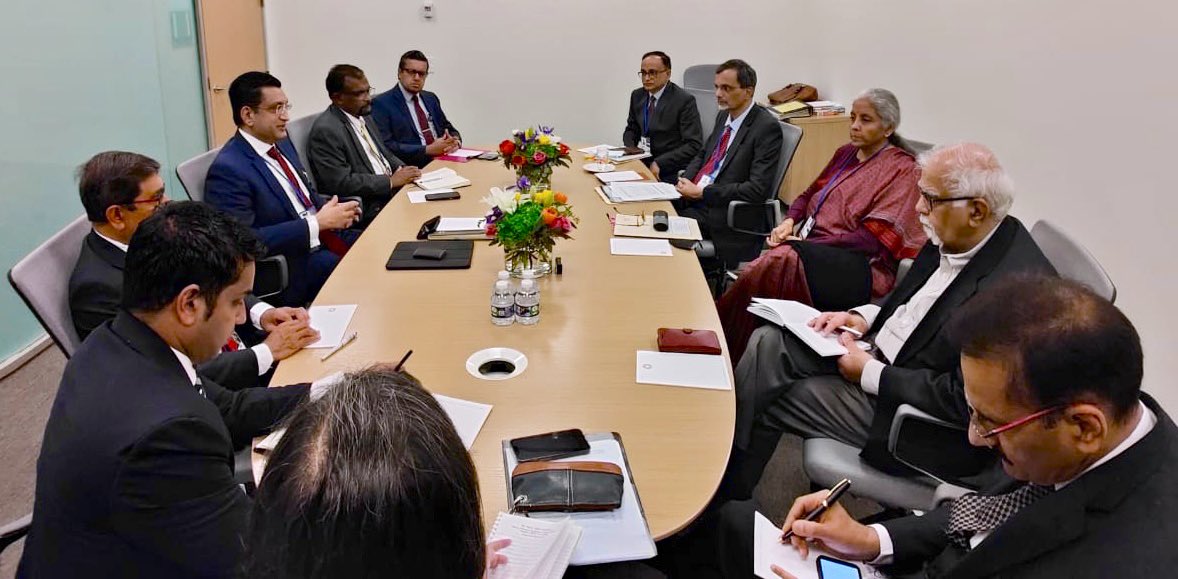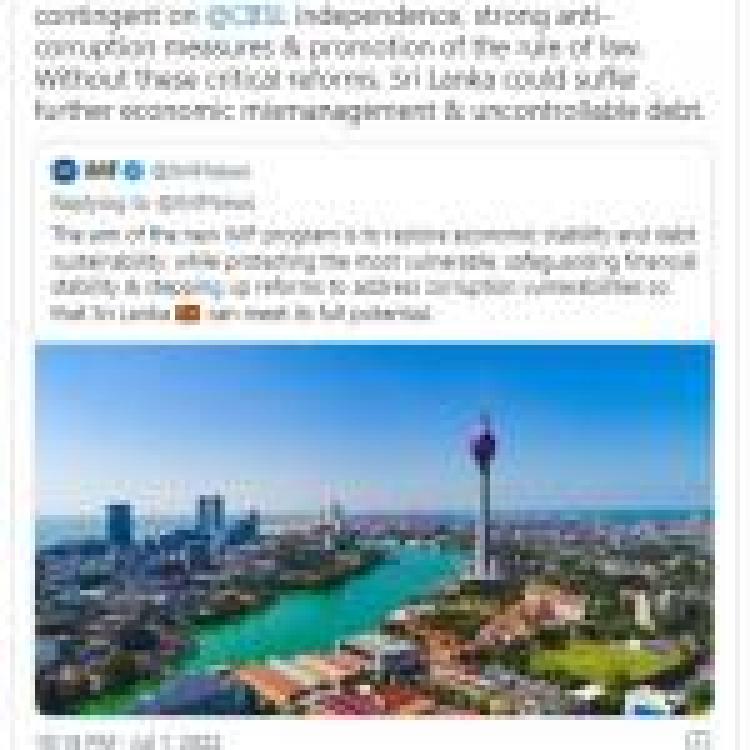IMF, Indian and Sri Lankan officials meet in Washington in April.
The UK Treasury pledged to carefully scrutinise any potential bailout package that the International Monetary Fund (IMF) may grant Sri Lanka, as concerns regarding corruption continue to be raised around the world.
Commenting on the ongoing discussion between the IMF and Sri Lankan government, the Treasury noted that “no proposal on Sri Lanka has yet been shared with members”.
“When one is made available, we will scrutinise it carefully, consistent with the IMF’s mandate,” it added, in a letter to British parliamentarian Theresa Villiers.
Responding to concerns around British taxpayer money being potentially misused in Sri Lanka, Economic Secretary to the Treasury John Glen said “I also agree that prudence with taxpayers’ money is critically important”.
“There is a strong multi-layered framework in place to safeguard taxpayers’ money with regards to the UK’s exposures to the IMF,” he added.
See the full text of the letter below.

The letter from the UK comes as concerns regarding corruption in Sri Lanka continued to be raised.
“Sri Lanka has a history of diverting aid,” tweeted former minister and Open Society Foundations president Mark Malloch-Brown last month. “[The IMF] must acknowledge the reason the country is in this mess by putting this issue on the agenda during their visit. Otherwise they risk bailing out corrupt politicians instead of people in need.”
Sri Lanka has a history of diverting aid. @IMFnews must acknowledge the reason the country is in this mess by putting this issue on the agenda during their visit. Otherwise they risk bailing out corrupt politicians instead of people in need. https://t.co/jlkfUGALiZ
— Mark Malloch-Brown (@malloch_brown) June 22, 2022
The US Senate Foreign Relations Committee also stressed that any agreement “must be contingent on [Central Bank of Sri Lanka] independence, strong anti-corruption measures & promotion of the rule of law”.
Even as US President Joe Biden announced US$20 million in aid, to reportedly feed over 800,000 children last month, US Ambassador Chung tweeted,
Oversight and transparency are critical components of our assistance programs. US aid is only awarded to partners that adhere to globally recognized monitoring and evaluation standards. This ensures that funding is accounted for, and assistance reaches those who need it most.
The topic was raised directly with the Sri Lankan government by the IMF, who highlighted the need to address “corruption” as discussions ended in Colombo last week.
Sri Lanka’s history of corruption stretches back several years, particularly with the ruling Rajapaksa regime. In the aftermath of the 2006 tsunami for example, Transparency International said that nearly half a billion dollars given to Sri Lanka in tsunami aid was unaccounted for, whilst a further US$600 million had been spent on projects unrelated to the disaster.
The Rajapaksas stand accused of personally misappropriating the funds.






